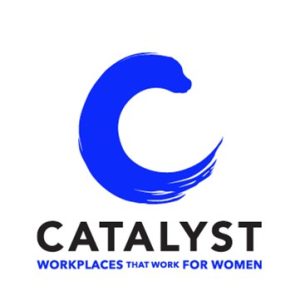New Catalyst research shows that 61% of employees from marginalized racial and ethnic groups experience being on guard to protect against bias due to race, ethnicity, or gender.
Toronto, Canada, November 9, 2022 — Experiences of emotional tax (being on guard to protect against bias due to race, ethnicity, and gender and the associated effects on well-being and ability to thrive at work) are pervasive in Australia, Brazil, Canada, the United Kingdom, and the United States. New global research conducted by Catalyst shows that 61% of employees from marginalized racial and ethnic groups in these countries are on guard against bias and discrimination on their teams.
The report, Emotional Tax on Work Teams: A View From Five Countries, is the first global sample on emotional tax and the first time Catalyst has presented findings on emotional tax for transgender and nonbinary employees.
Emotional Tax at Work Is a Pervasive Experience for People From Marginalized Racial and Ethnic Groups
- Although there is variability across countries, the majority of employees from marginalized racial and ethnic groups are on guard in each country.
- LGBTQ+ employees from marginalized racial and ethnic groups are highly on guard against bias within their work teams (74%), with an extremely high percentage of transgender and nonbinary employees being on guard (85%).
- Women (56%) and men (54%) from marginalized racial and ethnic groups are on guard to bias within their work teams at similar rates.
Employees—and Teams—Thrive When People Are Less On Guard
Across countries, when employees from marginalized racial and ethnic groups are less on guard, they are three times more likely to:
- Intend to stay in their organization.
- Be engaged or emotionally invested in their work and their company mission.
- Experience team cohesion—connection among team members as they work toward a common goal.
- Report effective team problem-solving.
And four times more likely to:
- Experience inclusion—being valued, trusted, authentic, and psychologically safe—at work.
Two Factors Make a Difference
Report authors Sheila Brassel, PhD, Emily Shaffer, PhD, and Dnika J. Travis, PhD, found two factors at the core of a team environment where employees from marginalized racial and ethnic groups are less on guard: team climate for psychological safety and team racial and ethnic diversity. In other words, the more psychologically safe and racially and ethnically diverse a team is, the less likely team members from marginalized racial and ethnic groups will be on guard.
“The emotional tax people from marginalized racial and ethnic groups experience in the workplace is persistent, pervasive, and global, said Lorraine Hariton, Catalyst President and CEO. “Companies must take intentional action to create safe, empowering, and inclusive work environments where this burden is lifted and all employees can thrive.”
“Too often, experiences of racism are construed as something that happens ‘out there’ rather than right here,” says report author Sheila Brassel, PhD. “These data show with clarity that that idea is patently false. Around the world, people from marginalized ethnic and racial groups are under a near constant threat of bias in their work teams.”
This study is the fifth in Catalyst’s emotional tax series, which identifies challenges and solutions to workplace inclusion for employees from marginalized racial and ethnic groups. For this report, Catalyst drew on global survey data collected through the Catalyst Inclusion Accelerator, a diagnostic tool that measures and monitors drivers, indicators, and outcomes of inclusion at work.
Methodology
Catalyst surveyed 3,065 people from marginalized racial and ethnic groups working in five countries: Australia, Brazil, Canada, the United Kingdom, and the United States. These countries were selected because of the ability to collect sufficient racial and/or ethnic demographic data from survey respondents. In each of these countries, people from marginalized racial and ethnic groups may have similar, though certainly not identical, experiences in navigating bias, unfair treatment, and discrimination in the workplace and society as a whole.
Report authors Sheila Brassel, PhD, Emily Shaffer, PhD and Dnika J. Travis, PhD






